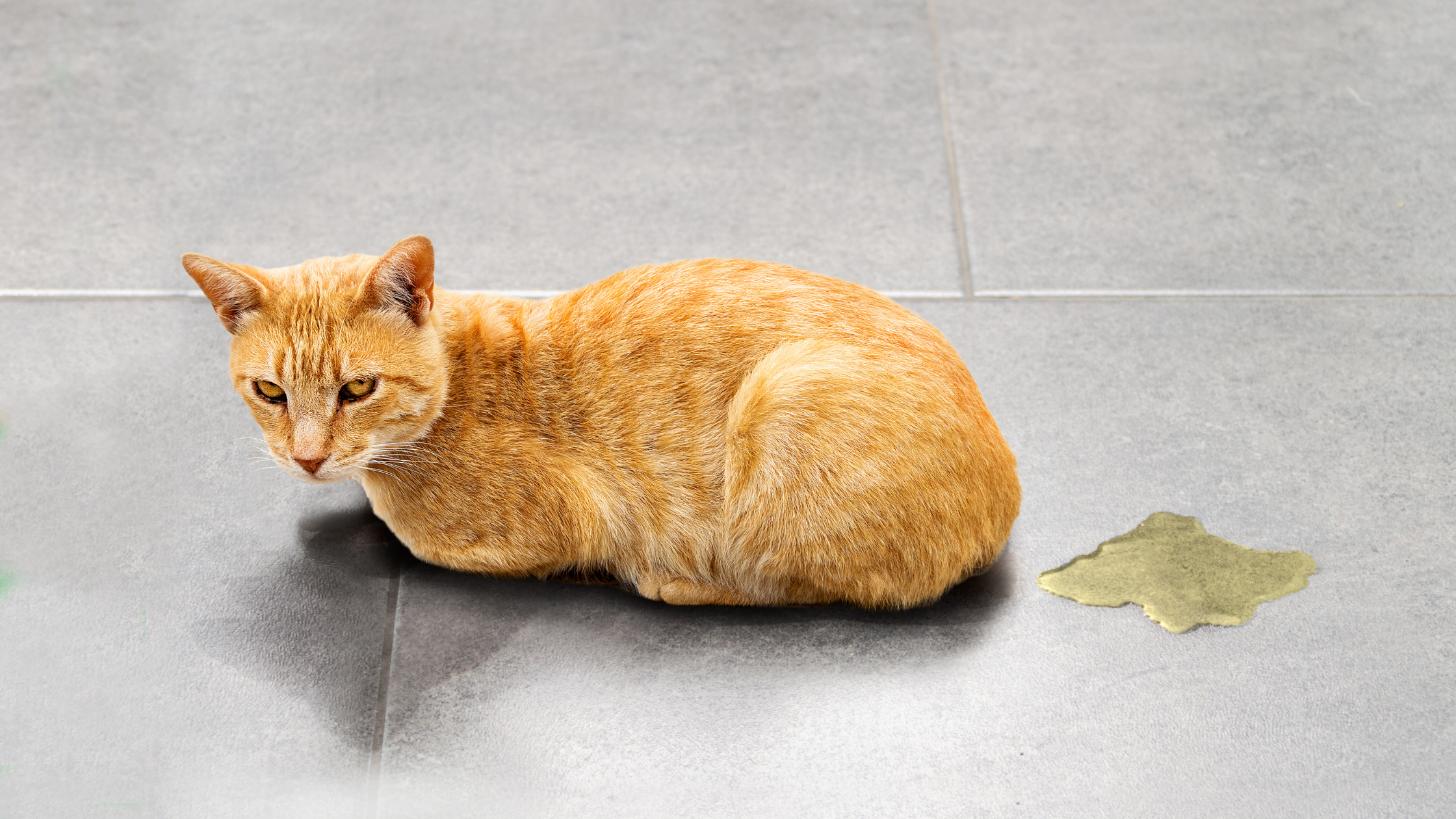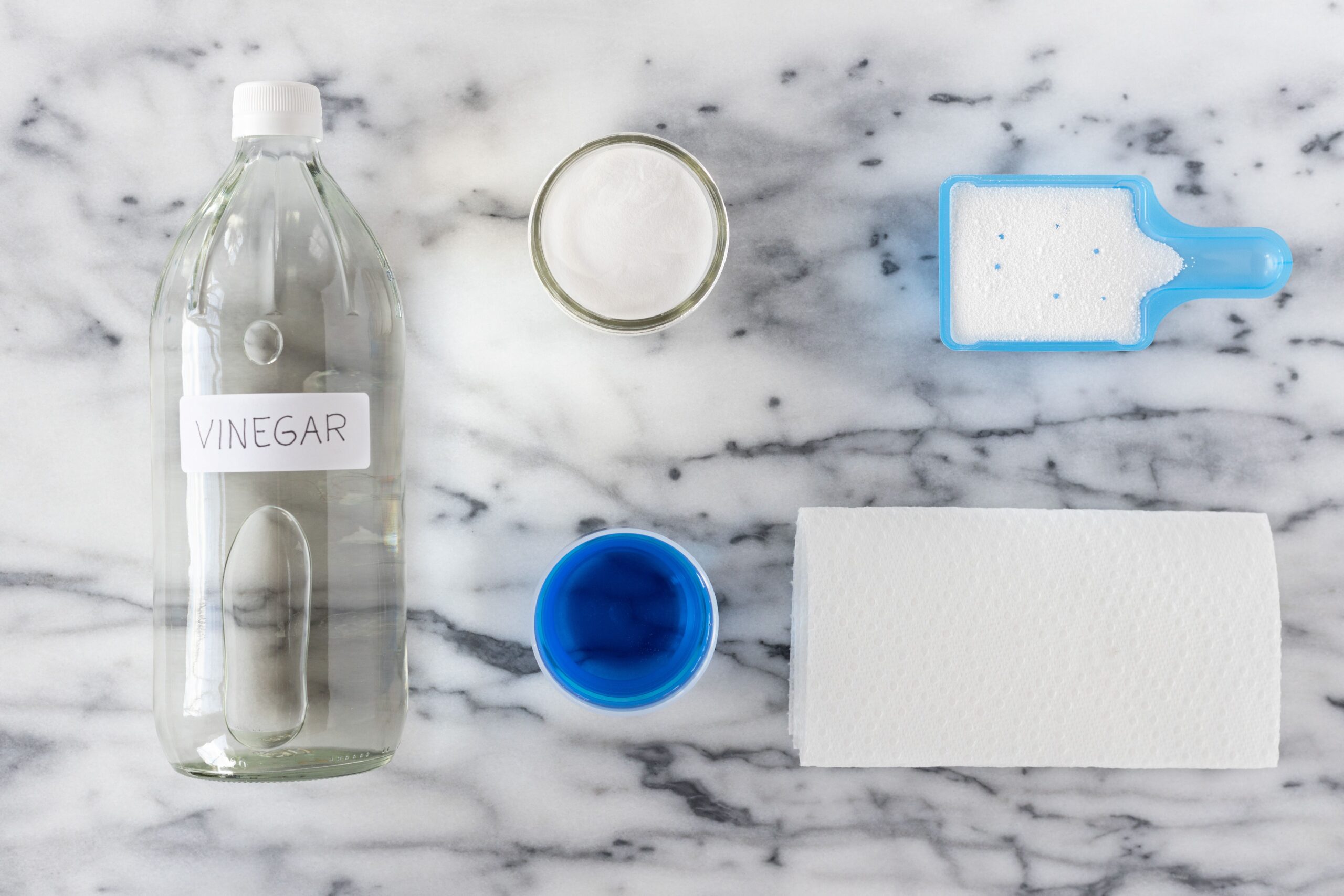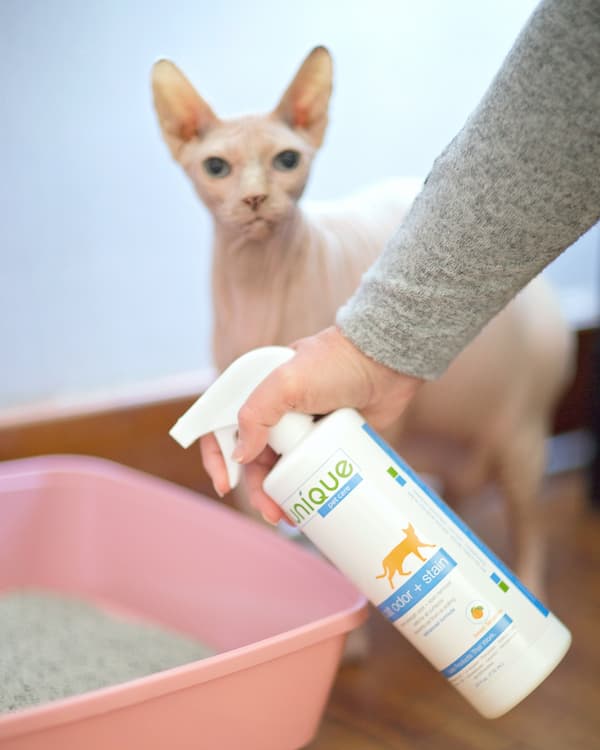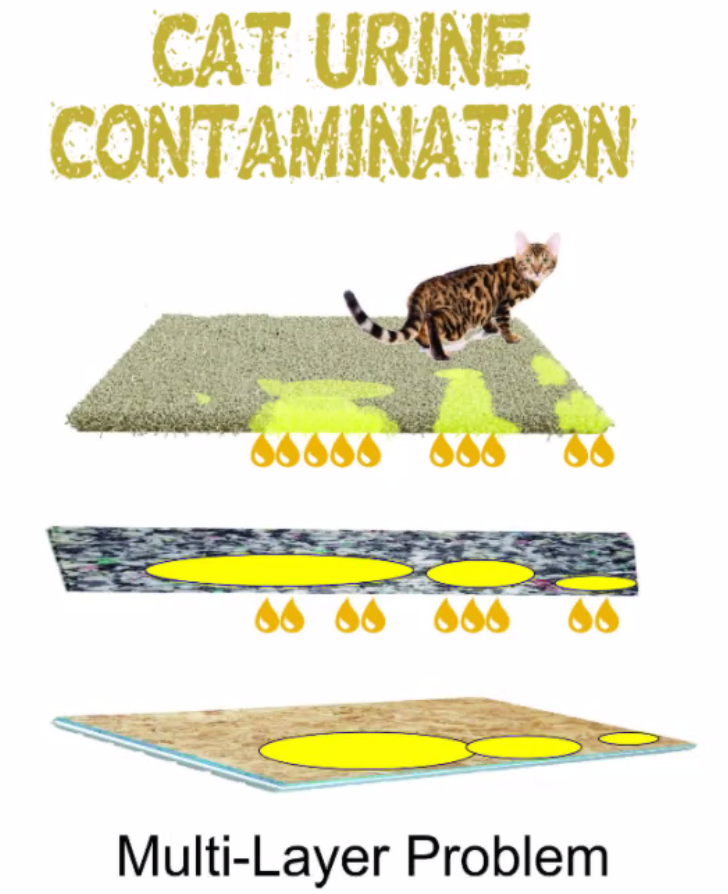Why Does Cat Urine Smell So Strong?

Cat urine contains a potent combination of ammonia, urea, bacteria, and pheromones, which creates a distinct and powerful odor. As the urine dries, the urea breaks down into ammonia, and the bacteria produce an even more pungent smell. This is why older urine spots tend to smell much worse than fresh ones. The longer the urine sits, the harder it can be to remove the odor. Additionally, male cats, especially unneutered ones, have more concentrated urine, which adds to the intensity of the smell.
Top Home Remedies for Removing Old Cat Urine Odor
While professional cleaners can be highly effective, there are several DIY remedies that you can use to get rid of old cat urine odors at home. Here are some of the best home remedies:
1. White Vinegar and Baking Soda

White vinegar is a natural deodorizer and works wonders on tough odors like cat urine. The acidity in vinegar neutralizes the ammonia in cat urine, breaking down the odor and making it easier to remove. Baking soda, on the other hand, is a powerful odor absorber. Together, they create a highly effective cleaning combination.
How to Use It:
- Mix one part white vinegar with one part water in a spray bottle.
- Spray the affected area thoroughly and let it sit for 5-10 minutes.
- Blot the area with a clean cloth to absorb the liquid.
- Sprinkle a generous amount of baking soda over the damp area.
- Let the baking soda sit overnight or for at least 12 hours.
- Vacuum up the baking soda residue to remove the smell.
This method works well on carpets, floors, and fabrics. For best results, repeat the process if the odor persists.
2. Hydrogen Peroxide and Dish Soap
Hydrogen peroxide is another effective odor eliminator that helps break down the bacteria causing the odor. When combined with dish soap, it lifts stains and neutralizes strong odors.
How to Use It:
- Mix 1/2 cup of hydrogen peroxide with 1 teaspoon of mild dish soap.
- Apply the mixture directly to the urine stain and let it sit for 10-15 minutes.
- Blot the area with a clean cloth, then rinse with water.
- Dry the area thoroughly to prevent any residual odor.
Hydrogen peroxide may lighten some fabrics, so it’s important to test this solution in an inconspicuous area before applying it to larger surfaces.
3. Enzyme Cleaners
Enzyme-based cleaners are one of the best options for removing old cat urine odors, as they work by breaking down the proteins in urine. These cleaners can penetrate deep into carpets, fabrics, and floors, eliminating the source of the odor instead of just masking it. You can find enzyme cleaners at most pet stores or online.
How to Use It:
- Apply the enzyme cleaner directly to the urine stain, ensuring the area is thoroughly saturated.
- Let it sit for at least 15-20 minutes, or follow the instructions on the product label.
- Blot the area with a clean cloth to remove excess moisture.
- Allow the area to air dry completely.
Enzyme cleaners are highly effective and safe for most surfaces. They work particularly well on older, set-in stains and odors.
4. Activated Charcoal
Activated charcoal is a natural odor absorber and is especially useful for eliminating lingering odors in enclosed spaces like rooms or closets. While it may not clean the urine stain itself, it can help absorb any residual smell after cleaning.
How to Use It:
- Place activated charcoal in a bowl or breathable pouch near the affected area.
- Leave it in place for several days to absorb the odor.
Activated charcoal is a great solution for long-term odor control, especially if the urine odor has permeated the room or surrounding air.
How to Prevent Cat Urine Odors in the Future

Once you’ve removed the old cat urine odor, it’s important to take steps to prevent it from coming back. Here are some tips to keep your home smelling fresh:
1. Clean the Litter Box Regularly
One of the most effective ways to prevent cat urine odors in your home is by keeping the litter box clean. Scoop the litter box daily and change the litter at least once a week. A clean litter box encourages your cat to use it more consistently, reducing the chance of accidents elsewhere in the house.
2. Address Medical Issues
If your cat is urinating outside the litter box frequently, it may be a sign of an underlying medical condition, such as a urinary tract infection. Consult your veterinarian to rule out any health issues that may be causing the behavior.
3. Use a Litter Box Attractant
Litter box attractants can encourage your cat to use the litter box instead of urinating on carpets or furniture. These products contain pheromones that mimic the natural scent cats look for when choosing a spot to urinate.
4. Consider Neutering or Spaying
Unneutered male cats tend to have stronger-smelling urine and are more likely to spray as a way of marking their territory. Neutering or spaying your cat can reduce these behaviors and help minimize strong urine odors.
When to Call Citywide Mold Mitigation for Help

In cases where old cat urine odor persists despite your best cleaning efforts, it may be time to call in professional odor removal services. Stubborn stains and odors can penetrate deep into carpets, floors, and even walls, making them difficult to fully remove with home remedies. Citywide Mold Mitigation offers expert odor removal services that can eliminate even the toughest urine odors from your home. Contact us today to schedule a consultation and take back control of your home’s freshness.
FAQ
| Question | Answer |
|---|---|
| Can baking soda remove old cat urine smell? | Yes, baking soda is a natural odor absorber that works well for removing old cat urine odors. Sprinkle it on the affected area, let it sit for several hours, then vacuum it up for best results. |
| Does vinegar really get rid of cat urine odor? | Yes, vinegar neutralizes the ammonia in cat urine, making it a powerful tool for removing odors. It works best when combined with baking soda or hydrogen peroxide for more stubborn smells. |
| How can I prevent my cat from urinating outside the litter box? | Ensure the litter box is clean, provide multiple boxes in different areas of the home, and address any potential medical issues with your vet. Neutering or spaying can also help reduce territorial spraying. |
| Are enzyme cleaners safe for carpets and upholstery? | Yes, enzyme cleaners are safe for most fabrics, carpets, and hard surfaces. Always test in an inconspicuous area before using to ensure it won’t cause any discoloration. |
| When should I call a professional for odor removal? | If home remedies aren’t effective or if the urine odor has deeply penetrated carpets, flooring, or walls, it’s best to call a professional like Citywide Mold Mitigation for thorough odor removal. |
If you’re dealing with persistent cat urine odors in your home, reach out to Citywide Mold Mitigation for professional odor removal services today.

